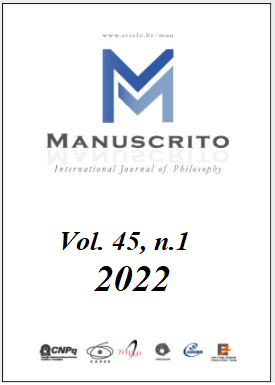Resumo
My notion of stable word meaning could correspond either to the root-node or the whole of a neurally-organized package and acknowledge that linguistic processing is largely holistic. The existence of words as context-free entities is not just a “cognitive idealization” however but a necessity, as otherwise speakers would have to make up their words on the spot. Holistic language processing undermines a sequential processing paradigm (first linguistic, then pragmatic). However, my model is only sequential in that linguistic-semantic units pre-exist their use and does not entail that a whole sentence must be assembled before pragmatic processing starts. The authors falsely suggest that I do not endorse a distinction between semantics and pragmatics. While I do argue that this distinction cannot be based on the sentence/utterance distinction, I hold that a clear dividing-line can be drawn between semiologically-signified and non-semiologically-signified content. I disagree that “even highly abstract, monosemic words like any should be seen as embodied, ” so that the mental process of random selection must be construed “in (complex) sensorimotor terms”. While one can form an image of someone picking out an apple from a basket, one cannot argue that one must do so in order to use any.
Referências
Carston, R. (2008), Thoughts and Utterances: the Pragmatics of Explicit Communication, London, John Wiley and Sons.
Davidson, D. (1986), “A Nice Derangement of Epitaphs”, in E. Lepore (ed.), Truth and Interpretation: Perspectives on the Philosophy of Donald Davidson, Oxford, Blackwell, 433-446.
Duffley, P. J. (2014), Reclaiming Control As a Semantic and Pragmatic Phenomenon, Amsterdam/Philadelphia, John Benjamins.
Duffley, P. J. and P. Larrivée (2015), “A Fresh Look at the Compatibility between any and Veridical Contexts: the Quality of Indefiniteness Is Not Strained”, Lingua 158, 35-53.
Löhr, G. and Michel, C. (2022) "Predictive Processing And The Semiological Principle: Commentary To Duffley", Manuscrito, v. 45, n. 1, 5-20.
Recanati, F. (2010), Truth-conditional Pragmatics, Oxford, Clarendon Press.

Este trabalho está licenciado sob uma licença Creative Commons Attribution 4.0 International License.
Copyright (c) 2022 Manuscrito: Revista Internacional de Filosofia


